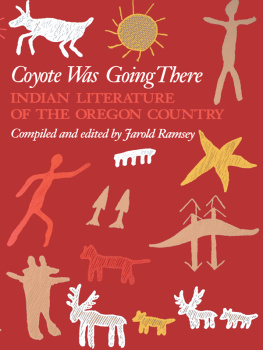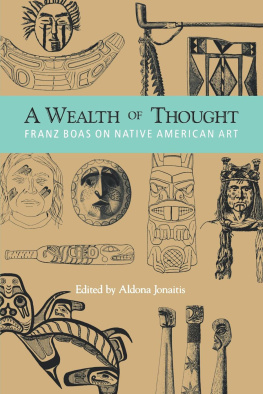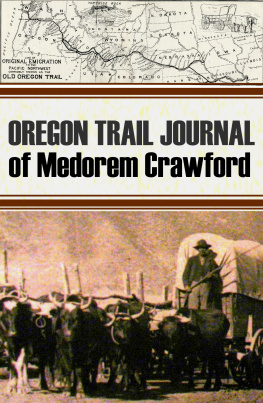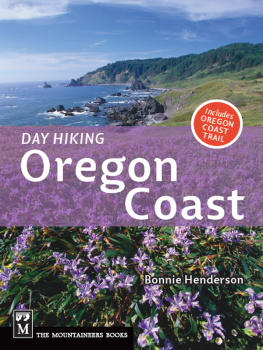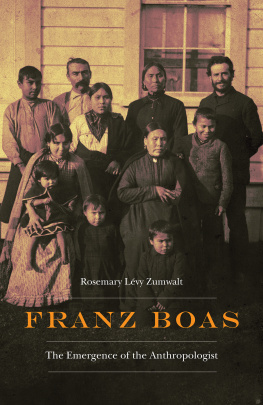All rights reserved. No part of this publication may be reproduced or transmitted in any form or by any means, electronic or mechanical, including photocopy, recording, or any information storage or retrieval system, without permission in writing from the publisher.
The paper used in this publication meets the minimum requirements of American National Standard for Information SciencesPermanence of Paper for Printed Library Materials, ANSI Z39.48-1984. 
Photographs of basketry from the Thomas Burke Memorial Washington State Museum (title page and pp. 3, 41, 87, 123, 177, 225, and 226) taken by Ed Quimby.
Acknowledgments
If the material cause of this book is a Central Oregon childhood spent around Indians and devoted to hunting for the artifacts of their ancestors, the efficient cause is in the works of the late Melville Jacobs. His angry essay on The Fate of Indian Oral Literature in Oregon (Northwest Review, Summer 1962, pp. 9099) polarized my own growing awareness, as an Oregonian writer living in New York State, of the imaginative power and historical value of the mythology of the Oregon Indians; and this book first began to take shape around 1968 as a response to Professor Jacobs challenge to Oregonians to wake up to their native literatureif indeed it wasn't already too late. That it has seemed to me not too late is due in large part to Professor Jacobs own monumental work on Northwest Indian languages and myth. To Mrs. Elizabeth Jacobs, I owe a special debt of gratitude for her encouragement and generosity to me, after her husband's death. A similar debt I happily acknowledge to Professor Isabel Kelly, whose Northern Paiute Tales was the first scholarly transcription of myths I read with excitement, suggesting the existence of other readable and accurate texts, which are now the basis of this book.
Many friends, mostly Oregonians, have been so closely and constructively associated with Coyote Was Going There that now the whole projectat least in its best partsseems inconceivable to me without them. Some of the most generous have asked to remain anonymous, and I respect their wishes: but in reading this they will, I hope, recognize themselves, and know how grateful I am for the help they have given. One special friend must be named here: Mrs. Alice Florendo, who took time out one afternoon in August 1970 from managing her busy restaurant near Warm Springs to tell me two fine Wasco stories from her childhood on the Columbia at Wishram. In that initial gift and in all her subsequent help and encouragement, Mrs. Florendo has typified the gaiety, good sense, and vitality of her people; she has greatly fortified my will to finish the work.
Many writers today have begun to hope for an American discovery of Indian literature as literature, as part of our fund of imaginative wisdom. With that goal in mind for Oregon atleast, I have been heartened from the beginning by the interest, stimulation, and good cheer of poets like William Stafford, W. S. Merwin, Jerome Rothenberg, Gary Snyder, William Matchett, and Ted Hugheseach of them well versed in aspects of Western Indian myth. I confess here that, in fact, one question I generally raised in choosing materials for this anthology was whether poets and writers like these would be excited by such-and-such a story or song.
I have enjoyed unstinting bibliographic aid and indeed comfort from the University of Rochester Library; and also from the University of Oregon Library, the Oregon State Library, Macpherson Library of the University of Victoria, the Library of the American Philosophical Society, and the Umatilla County Library of Pendleton, Oregon, Ms. Jane D. Hamm, Librarian. My students in mythology and regular literature courses at the University of Rochester have puzzled, prodded, and provoked me into what I hope are clarifications, as have my colleagues in the English and Anthropology faculties, notably Professors Howard Horsford, Bruce Johnson, George Ford, Matthew Marino, and the late Gerald Williams. Coyote's blessings on them all.
It was from my grandfather, the late J. R. Mendenhall, my father, the late A. S. Ramsey, and Mr. John Campbell of Madras, Oregon, lifelong tillicums of the Indians all three, that I first heard fragments of the kinds of mythic narratives that make up this bookand I have hoped that they would approve. To my own household tribe of Oregon-grindersDorothy, Kate, Sophia, and John: now, having been patient and listened for so long, it's your turn to tell stories!
And to the Indian people of the Oregon country, to whose cultural and educational purposes a portion of this book's income is assigned: Coyote Was Going There is mainly for you.
Grateful acknowledgment is made to the following for permission to reprint material copyrighted or controlled by them:
American Folklore Society, for material published in Journal of American Folklore and Memoirs of the American Folklore Society: Coyote and Fox Marry Husbands, Laptissan and the Seven-headed Monster, ed. Herbert Spinden, from Folk Tales of Salish and Sahaptin Tribes, ed. Franz Boas (MAFS, 1917); Cry-Because-He-Had-no-Wife, from HerbertSpinden, Myths of the Nez Perce Indians (JAF 21, 1908); Amhuluk, the Monster of Wapato Lake, from Albert Gatschet, Oregonian Folklore (JAF 4, 1891); The Man Who Lived with Thunderer, Xilgo and the Brother and Sister Who Married Each Other, The Journey across the Ocean from Franz Boas, Traditions of the Tillamook Indians (JAF 11, 1898); The Theft of Fire, from Roland Dixon, ed., Shasta Myths (JAF 23, 1911); Genesis, from Leo J. Frachtenberg and Livingston Farrand, eds., Shasta and Athapascan Myths from Oregon (JAF 28, 1915).
American Philosophical Society Library, for MS materials: How Fish-Hawk Raided the Sioux, ed. Morris Swadesh, from Cavuse Interlinear Texts (1930); Kalapuya Ceremonial Song; letter of Archie Phinney to Franz Boas, Nov. 20, 1929.
M. A. R. Barker and the University of California Press, for The Crater Lake Myth, The Story of Swa-ya, Little Porcupine and Coyote, from Klamath Texts (University of California Publications in Linguistics, vol. 30, 1963). Originally published by the University of California Press; reprinted by permission of the Regents of the University of California.
Thomas Brundage and Harold Mackay, and Northwest Folklore, for Coyote's Swallowing Match with Grizzly Bear (Northwest Folklore, Winter 1968).
University of California Press for material in University of California Publications in American Archaeology and Ethnology (UCPAAE): Chiloquin the Hero, from Leslie Spier, Klamath Ethnography (UCPAAE 30, 1930); Tracks of the Creator, The Thunder Badger, and The Purging of Malheur Cave, from W. L. Marsden, The Northern Paiute Language of Oregon (UCPAAE 20, 1923); How to Control the Weather and A Hunter's First Kill, from Isabel Kelly, Ethnography of the Surprise Valley Paiutes (UCPAAE 31, 1932). Originally published by the University of California Press; reprinted by permission of the Regents of the University of California.

